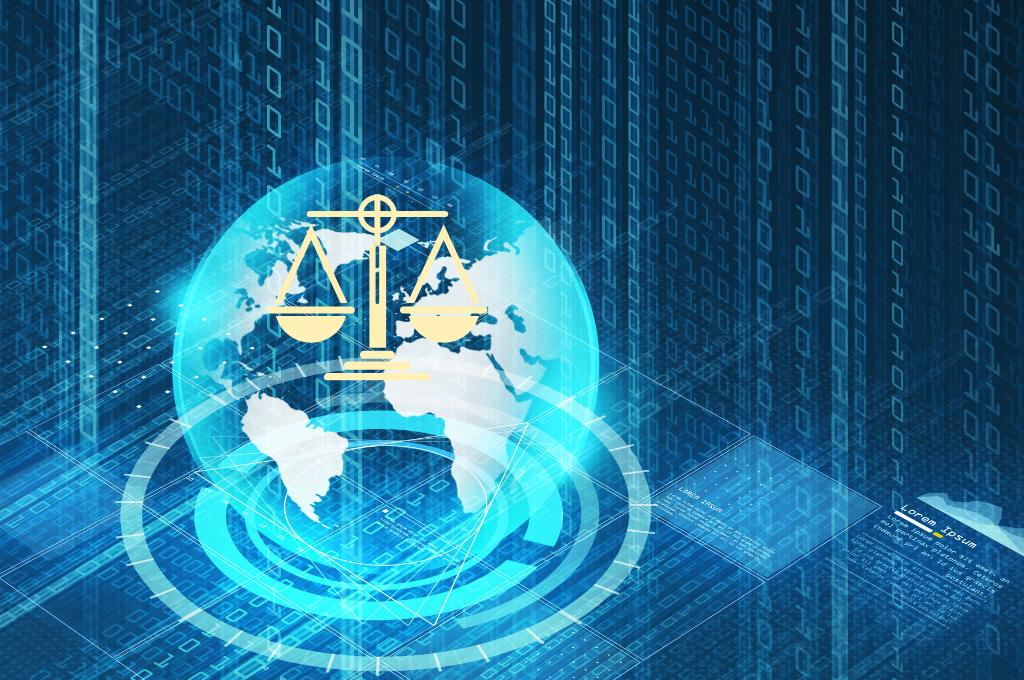The reality around us is moving more and more to the virtual world. The Internet has become a space in which we share our experience and meet, but also offer goods and services or even carry out comprehensive business activities. In this context, it seems that our activities in the virtual area are slowly beginning to catch up with the ones which take place in our everyday reality. Along with this trend, there appear new legal challenges faced by the representatives of the e-commerce industry or other sectors.
As is well known, business is based on competition between entities that rival each other by offering their goods and services. These are identified by various markings which consumers often associate with a particular quality or the origin of the product. These markings are also present in the virtual world. They are of the same nature although in slightly more varied forms. Number one among these is the domain name, which is a unique network address that identifies the website run by the subscription owner under that address.
As is the case in the real world, the Internet is also the place where disputes arise between traders over the distinctive markings they use. When talking about battles taking place in the virtual space, let us start with those concerning infringements of rights by using a domain name.
Disputes over domain name registration
In order to illustrate the most typical situations in which someone else’s right is infringed, it is necessary to start by referring to the structure of a domain name. It is made up of distinctive and non-distinctive elements, the latter being those which can be used by all traders. A classic structure of an Internet domain address using the Polish country code top-level domain is as follows: www.name.pl. The distinguishing element, i.e. the one that makes it possible to localise the content presented under a given domain name, is the name of the second-level domain. It is more often the case that it takes the form of a registered trademark, a company name, but also an unregistered marking, a first or last name, a pseudonym, etc. The name of the second-level domain is what is at issue in disputes over Internet addresses.
Disputes in this area are most often about infringement of someone else’s subjective rights, e.g. by using someone else’s registered trademark in the name of the second-level domain, if the goods or services offered within the contents of the website operated under that domain name are reserved for that trademark. In this case, the website plays the same role as the shop window you pass while walking down the street or in a shopping mall. This position was taken by the Supreme Court, which in its judgment of 11 December 2013 (ref. IV CSK 191/13) stated that the use of a protected marking on the Internet should be evaluated according to general rules provided for in this respect in the provisions of Article 296 of the Act of 30 June 2000 – Industrial Property Law (Journal of Laws 2021, item 324).
Infringement of a right – yet in a completely different aspect – may consist in registration of a domain name in bad faith, such as in the phenomenon referred to as ‘domain name piracy’. Under the current legislation, in relation to the virtual space, this type of charge may be raised where a domain name is registered or acquired primarily with a view to its subsequent sale to an entity that holds legal title to the name used in the second-level domain, where a domain name is registered in order to prevent the holder of said name from using it in the domain name, or where a domain name is registered in order to disrupt the activities of a business competitor. All the indicated actions may, in certain circumstances, fulfil the criteria of an act of unfair competition, whether specified or unspecified by the law.
A fairly common form of domain name infringement is cybersquatting, which consists in ‘squatting’ domain names before an entity with a legal title to a given name of the second-level domain has had time to conclude a contract for the registration of the domain name. This is followed by an offer to resell such a domain name at an inflated price, being completely unreasonable given what is on the market. The term ‘cybersquatting’ has in fact already found its way into the legal language and as such appears in the judicial decisions of common courts as one of the unspecified acts of unfair competition (cf. judgment of the Court of Appeal in Poznań – I Civil Division of 24 May 2019, ref. I ACa 989/18). This confirms that these types of cases are occurring more and more frequently in the environment of virtual business trading.
A related act of unfair competition is typosquatting, which in turn consists in ‘monopolising’ a domain name with a name of the second-level domain similar to e.g. another entrepreneur’s company name or trademark. The name differs slightly from the original, e.g. by a duplicated or omitted single letter, which is intended to mislead virtual consumers. By ‘visiting’ such an address they are convinced that they are purchasing goods from another trader.
How to deal with such infringements of intangible property rights on the Internet? The simplest, quickest and certainly least costly way to resolve a dispute over the registration of an Internet domain – other than of course settling the dispute amicably – is to submit it to the courts of arbitration. This possibility is generally provided for in the service provision regulations governing the maintenance of names of the second-level domain in domain names. The Court of Arbitration at the Polish Chamber of Information Technology and Telecommunications shall be competent for disputes concerning (.pl) domains, the Court of Arbitration in Prague (Czech Republic) for (.eu) domains and the Court of Arbitration at the World Intellectual Property Organisation (WIPO) in Geneva (Switzerland) for (.com) domains.
By referring cases to these arbitration courts, in the event of infringement of subjective rights under national law, we may demand that the service provider terminate the contract with the subscription owner of the domain name at issue or transfer it to us.
Other online infringements of intangible property
Infringements of intellectual property rights on the Internet, which have recently been becoming more frequent, are not limited to disputes relating to the registration of an Internet domain name. They may also occur with respect to the contents of the website hosted under a particular domain name.
This is most often the case when an entrepreneur distributes another person’s work without proper authorisation. Quite often on the web, we come across situations where photographs of original products from their manufacturer’s catalogues are used on the websites of distributors of goods. In many such cases, it comes as quite a surprise that copyright in such photographs has been infringed. It should be remembered, however, that a catalogue photo is usually subject to copyright and its legal use requires the permission of its creator or other right holder.
Economic copyrights may also be infringed by using in the content of the website original product descriptions prepared by the manufacturer (cf. judgment of the District Court in Rzeszów of 26 April 2019, ref. no. VI GC 297/18). In this case, however, it should be noted that a product description will not always enjoy copyright protection, especially if it only refers to the technical features of the goods or is simply not of a creative nature.
How to avoid a contentious situation here? It is best to conclude a licence agreement specifying the use of the images or to include provisions to this effect in the contract under which the original products are distributed. The situation is similar with the product descriptions. If they have been given an original, imaginative form in the catalogue, which does not merely amount to simple information, then it is better to also ensure that you have permission to distribute them.
Of the types of infringements mentioned, which may be encountered in the content of the website, it is also worth pointing to linking. In this case, generally speaking, infringement may occur by placing a reference (link) on the website to another Internet address, where someone else’s work is unlawfully distributed. It must then be additionally verified whether, for example, such action was done consciously and for profit-making purposes (cf. CJEU judgment of 8 September 2016, ref. C-160/15).
How to deal with such cases? Firstly, you should request the entity which commits the aforementioned actions on their website to voluntarily cease the infringements, and if such a request does not result in any response, you can consider taking the matter to court. Competence for such cases is currently vested in the ‘intellectual property courts’, which are specialised divisions of district courts.
With reference to the ‘virtual battles’ of the title, it is impossible to ignore the ones that take place within sales platforms when the goods offered through them or the user account names created there infringe the rights of others. Pursuant to the applicable provision of Article 14 of the Act of 18 July 2002 on the provision of electronic services (Journal of Laws of 2020, item 344), hosting providers are obliged to react when they receive reliable information on the unlawful nature of data submitted by users. In such cases, auctions are blocked, and if the user grossly violates the rules of the site (e.g. repeatedly places auctions that infringe the rights of others), their account may be suspended.
The current legal regulations in this area cause many doubts and debates as to whether they are effective and what form they should ultimately take in order to ensure reasonable protection of intangible assets. This will be discussed with representatives of online platform owners already in December 2021 during an expert panel organised as a side event of the UN Digital Summit – IFG , which will take place in Katowice.
The existing legal regulations in this area are balanced but still often considered outdated and imprecise. Therefore, legislative work has already started in the European Union on a new regulation called the Digital Service Act (DSA). It is to implement a unified mechanism for the verification of reports on infringements of intellectual property rights that occur within sales platforms. Currently, these types of issues are regulated internally by each sales platform.
Co-author: Tomasz Gawliczek, PhD, Attorney at Law, Patent & Trademark Attorney, JWP Patent & Trademark Attorneys
The article was published on December 17, 2021, in Rzeczpospolita newspaper



